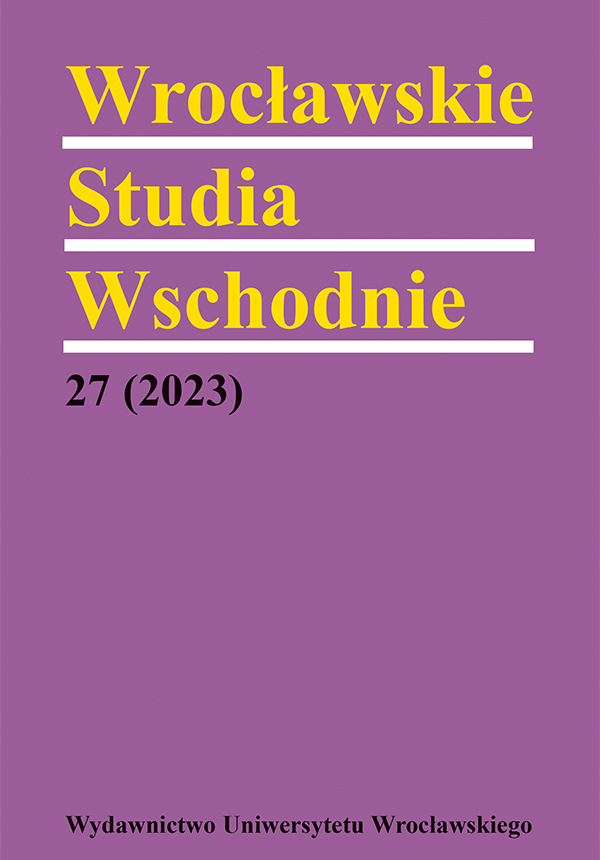

Artykuły

In this article I analyze the historical process of production of Europe, including its East and West, with reference to the postsocialist transformations in Poland exemplified by discursive practices focused on LGBT rights. I pay particular attention to grassroots discourses and practices that emerged in Wrocław in the context of two team action research projects cofinanced by the European Union and based on the concepts of sexual citizenship and the Pink Agenda of the EU. In the light of these concepts Eastern Europe (including Poland) appears as “backward” in relation to “modern” Western Europe, whose standards it should implement. Yet, such a vision of Europe is destabilized by grassroots discourses and practices that reveal problems brought by naturalization of a specific model of social positioning of non-heteronormative people as a measure of Europeanness. They point rather to the need to capture the multidimensional, relational and dynamic character of Europe that defies binary ways of thinking.
Ammaturo F.R., European Sexual Citizenship. Human Rights, Bodies and Identities, London 2017.
Babb F.E., Neither in the closet nor on the balcony. Private lives and public activism in Nicaragua, [w:] Out in Public. Reinventing Lesbian/Gay Anthropology in a Globalizing World, red. E. Lewin, W.L. Leap, Malden 2009, s. 240–255.
Baer M., Europeanization on the move. LGBT/Q activist projects in contemporary Poland, „Intersections. East European Journal of Society and Politics” 6, 2020, nr 3, s. 56–60.
Baer M., Między nauką a aktywizmem. O polityczności, płci i antropologii, Wrocław 2014.
Baer M., Women’s Spaces. Class, Gender and the Club. An Anthropological Study of the Transitional Process in Poland, Wrocław 2003.
Barker C., Studia kulturowe. Teoria i praktyka, przeł. A. Sadza, Kraków 2005.
Buchowski M., Difficult identities. Recreating mental map of Europe, [w:] M. Buchowski, Rethinking Transformation. An Anthropological Perspective on Postsocialism, Poznań 2001.
Buchowski M., Widmo orientalizmu w Europie. Od egzotycznego Innego do napiętnowanego swojego, przeł. M. Golinczak, „Recykling idei. Pismo społecznie zaangażowane” 2008, nr 10, s. 100.
Červinková H., Bolączki męskości na buzerplatz. Oficerowie czeskiej armii w „okresie przejścia”, przeł. P. Polczyk, „Zeszyty Etnologii Wrocławskiej” 1, 2008, nr 10, s. 6.
Delanty G., Formations of European Modernity. A Historical and Political Sociology of Europe, London 2013.
Duggan L., The new homonormativity. The sexual politics of neoliberalism, [w:] Materializing Democracy. Toward a Revitalized Cultural Politics, red. R. Castronovo, D.D. Nelson, Durham 2002, s. 175–194.
Dzenovska D., School of Europeanness. Tolerance and Other Lessons in Political Liberalism in Latvia, Ithaca 2018.
Dybska A., Regeneration, Citizenship, and Justice in the American City since the 1970s, Frankfurt am Mein 2016.
Fortun K., Ethnography in late industrialism, „Cultural Anthropology” 27, 2012, nr 3, s. 451–452.
Goodale M., Anthropology and Law. A Critical Introduction, New York 2017.
Gupta A., Ferguson J., Poza „kulturę”. Przestrzeń, tożsamość i polityka różnicy, przeł. J. Giebułtowski, [w:] Badanie kultury. Elementy teorii antropologicznej. Kontynuacje, red. M. Kempny, E. Nowicka, Warszawa 2004, s. 267–283.
Leszczyńska K., The Roman Catholic Church in Poland vis-à-vis Europe and the processes of European integration. Three pictures of Europe, [w:] Religion, Politics, and Values in Poland. Continuity and Change Since 1989, red. S.P. Ramet, I. Borowik, London 2016.
Keinz A., Lewicki P., Who embodies Europe? Explorations into the construction of European bodies, „Anthropological Journal of European Cultures” 28, 2019, nr 1, s. 6.
Korolczuk E., Graff A., Gender as “Ebola from Brussels”. The anticolonial frame and the rise of illiberal populism, „Signs. Journal of Women in Culture and Society” 43, 2018, nr 4, s. 797–821.
Kulpa R., Western leveraged pedagogy of Central and Eastern Europe. Discourses of homophobia, tolerance, and nationhood, „Gender, Place and Culture” 21, 2014, nr 4, s. 431–448.
Margalit A., Buruma I., Okcydentalizm. Zachód w oczach wrogów, przeł. A. Lipszyc, Kraków 2005.
Mizielińska J., Kulpa R., “Contemporary peripheries”. Queer studies, circulation of knowledge and East/West divide, [w:] De-Centering Western Sexualities. Central and Eastern European Perspective, red. R. Kulpa, J. Mizielińska, Farnham 2011, s. 11–26.
Pratt M.L., Imperialne spojrzenie. Pisarstwo podróżnicze a transkulturacja, przeł. E.E. Nowakowska, Kraków 2011.
Rawłuszko M., And if the opponents of gender ideology are right? Gender politics, Europeanization, and the democratic deficit, „Politics and Gender” 17, 2021, nr 2, s. 301–323.
R.C.M. Mole, Nationalism and homophobia in Central and Eastern Europe, [w:] The EU Enlargement and Gay Politics. The Impact of Eastern Enlargement on Rights, Activism and Prejudice, red. K. Slootmaeckers, H. Touquet, P. Vermeersch, London 2016, s. 100–101.
Restorative cities, https://www.euforumrj.org/en/restorative-cities.
Said E.W., Orientalizm, przeł. M. Wyrwas-Wiśniewska, Poznań 2005.
Todorova M., Bałkany wyobrażone, przeł. P. Szymor, M. Budzińska, Wołowiec 2014.
Verdery K., A transition from socialism to feudalism? Thoughts on the postsocialist state, [w:] K. Verdery, What Was Socialism, and What Comes Next?, Princeton 1996, s. 204–205.
Wolfe T.C., Cultures and communities in the anthropology of Eastern Europe and the former Soviet Union, „Annual Review of Anthropology” 2000, nr 29, s. 17.
Wolff L., Inventing Eastern Europe. The Map of Civilization on the Mind of the Enlightenment, Stanford 1994.
Wroclaw is the first Restorative City in Poland and 10th in the world, https://www.wroclaw.pl/en/wroclaw-is-the-first-restorative-city-in-poland-and-10th-in-the-world.
Wrocławskie Centrum Sprawiedliwości Naprawczej, https://www.wcsn.pl/.